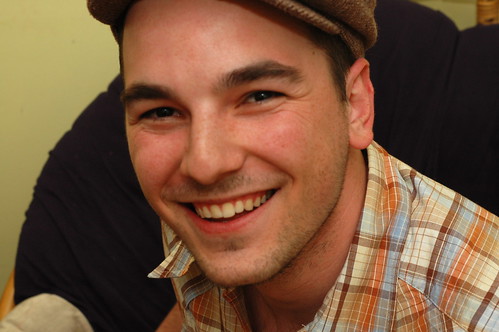Inspirational Signals
Two weeks ago the guys over at 37 signals opened themselves up to questions in a post called What do you want to know? I went through the 171 comments and picked out the ones that enlightened me.
----------
What I am most interested in is how you (Jason) sought out the talent/team that is 37signals
JF on Hiring Practices
We look for great people. I'm not talking about talent (yet), I'm talking about character. Everyone that works at 37signals is a great person. Trustworthy, considerate, curious, passionate, motivated, smart, good teachers, good listeners, responsible, mature, kind.
I would never hire someone I didn't like as a person. I don't care if he/she is a rockstar designer or programmer or whatever—if I don't like them as a person they won't be working here.
You must trust the people you work with. You must be able to learn from the people you work with.
As far as talent goes, you just have to know what to look for. It's not really possible to explain that in words. It's more of a feeling. And it also has a lot to do with the culture. The talent has to fit the culture. Programmers who only care about programming aren't welcome at 37signals. Same with designers who only care about design. The talent needs to respect the other talent.
Most of all, I think it's about seeing the potential in people. We all have a lot to learn, so it's not always fair to hire someone based only on what they can do today. You need to be able to figure out where they can go. What they can get better at. And what they want to get better at.
DHH on Hiring Practices
Jeff, we tend to recruit talent that we can test-drive first. In programming that has meant someone who's work we've known intimately through the Rails community (all programming hires so far have been Rails Core team members). We get a little uneasy about hiring talent where we can't examine a long history of public work. And of course, as Jason says, they just have to be pleasant people with a good cultural fit.----------
For a young aspiring designer . . . What are best ways to develop skills?RS on Developing Skills
The best way to develop skill is to develop interest. Skill results from practice, and practice happens out of interest. Find what gets you excited, find where you see potential for something better, and work on it.
----------"This could be better" is a huge motivator.
What are your fears? (business, competition, etc.?)
JF on Fear
My biggest fear is that we forget what we're good at. That's building simple, focused tools that get the job done quickly and elegantly.
DHH on FearThere's a lot of pressure to always deliver bigger products with more features. "If you only offered this…" "If you only had that…" "If you could only add this one feature…" Bloat comes easy, focus is hard work.
As far as the competition goes… It's smart to pay attention to what they're doing, but don't obsess or worry too much about them. In general its wise not to worry about things you can't control. The competitive landscape changes, the economy changes, markets change. You can't control those things.
Focus on what you can control: Building a great product and providing a great experience for those who use your products. That's what you should be worrying about.
Chris, my biggest fear is that we'll loose or forget our constraints. Magic is much easier to come by when you don't have enough time, enough money, or enough people. I like easy magic, so I like holding on to the constraints that delivers just that.
----------
Do you have a business plan? Do you update it frequently?
JF on Business Plans
No. I've never believed in business plans.





0 comments:
Post a Comment